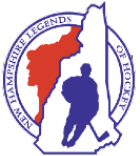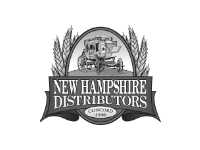Concord Eastern Olympics Hockey Club
Year Inducted: 2023
In October of 1967 the Concord Coachmen were preparing to launch their season with tryouts at the Everett Arena. Head coach Norm Burns, the former N.Y. Rangers defenseman, was returning for his second season. He and Director of Player Personnel Bob Tardif put the players through the paces trying to secure the best players available for the squad. The Coachmen had posted a 24-12-2 record the previous year. Suddenly, over the next week, the Coachmen merged with the Eastern Olympics of the Greater Boston area and became known as the Concord Eastern Olympics.
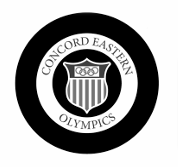 After the Everett Arena Corporation announced that it intended to build a new grandstand in the balcony, increasing the capacity to 2,440 spectators, the team made a blistering debut, beating the Buffalo Hawks 15-2 and 9-0 on Nov. 4 and 5. A combined 2,800 fans attended the two games. The new league was called the Northern New England Hockey League and competition included the Manchester Blackhawks, Berlin Maroons and the Lewiston Auburn Twins.
After the Everett Arena Corporation announced that it intended to build a new grandstand in the balcony, increasing the capacity to 2,440 spectators, the team made a blistering debut, beating the Buffalo Hawks 15-2 and 9-0 on Nov. 4 and 5. A combined 2,800 fans attended the two games. The new league was called the Northern New England Hockey League and competition included the Manchester Blackhawks, Berlin Maroons and the Lewiston Auburn Twins.
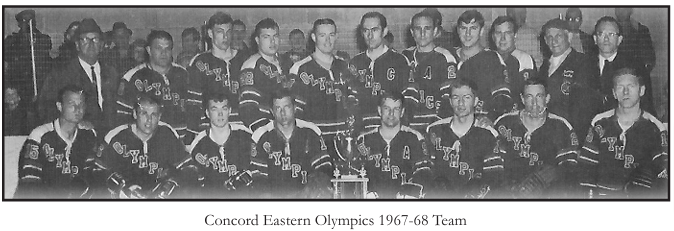
1967-68
Players from the opening roster included Camille Caissie, Pete Maggio, Jim Logue, Steve Murphy, Sandy Murphy, Buzz Littell, Buddy Emery, J.P. St. Laurent, Wayne Pecknold, Frank Seabury, Bill Seabury, Chuck Kyle, Jim Meehan, Dave Morse, Dick DeCaprio, Roger Letourneau, Mike Frigard, Bill Matthews, Dick Fuller, Dave Davidge and Charlie Stuart.
The team simply dominated, posting a 25-9-1 overall record, and scored an astonishing 247 goals while allowing just 117. Goalie Tommy Aprille played in 20 of the 35 games. The championship was a best-of-three series with the Eastern Olympics and rival Manchester.
On Saturday at the JFK Coliseum the Olympics won 4-3 at 2:53 of the second overtime as Dick Pinch’s third goal of the evening, assisted by Billy Seabury and Paul Hurley. Tom Aprille was stellar in net stopping 39 shots.
On Sunday back in the Capital City the Olympics had their work cut out in front of 2,200 fans on St. Patrick’s Day, and the locals did not disappoint. They took a 2-1 lead into the second period on goals from Meehan and Pecknold. Four other players scored for Concord, including two from Pinch and Aprille made another 26 saves and the C.E.O won the title, 7-3. The offense was led by Dick Pinch, who tallied 40 goals while assisting on 44 for 84 points. Buzzy Littell closely followed with 36 markers.
1968-69
As the team prepared to defend its championship, it hired Jack Garrity, a Boston University star from the early ‘50s, as its new coach. The league added three teams from Massachusetts, including the Braintree Hawks, Lowell Chiefs and the Framingham Pics, along with the returning Manchester Blackhawks.
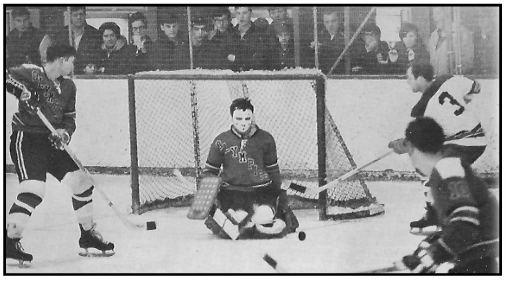
Regular-season champ Concord faced off against the Lowell Chiefs in the semifinals and wrapped up its best-of five series with a 10-6 win. The line of Bill Seabury (five), Steve Murphy (four) and Sandy Murphy (six) scored 15 goals in the series to lead the offense.
It was the Blackhawks traveling to Concord to begin this best-of-three championship. The Olympics won the opener by a score of 6-5. Pinch boosted the locals while Bob Brescia made 35 saves. In Game 2, the Blackhawks shut down our locals 6-0 to even the series and force the deciding game.
It quickly appeared the Blackhawks had the momentum in the deciding game, jumping out to a 1-0 lead from Kangaroo Hebert 51 seconds in. On the strength of Andre Prefontaine’s four first-period goals they took a 6-0 lead after one period and cruised to an 8-3 win – and championship.
1969-70
In 1969-70 the team hired Pat Eagan to coach the squad and the league added the Nashua Maple Leafs. Concord finished the regular season with a 23-8-0 record and in first place.
In Game 1 of the best-of-seven finals, the Olympics got off to a flying start in front of a packed house at the Everett Arena, knocking off the Leafs 6-5. At Nashua Gardens for Game 2, Concord jumped to a 2-0 lead on goals by Pecknold and McLaughlin, and held a 4-2 lead heading to the final stanza before allowing a third goal to Nashua. But Tom Smelstor protected the goal the rest of the way to secure the 4-3 win and 2-0 series lead.
In Game 3, the Leafs traveled to Concord and took a 3-1 lead into the third before the Olympics came roaring back cutting the lead to 4-3 at 9:30 of the third, but Leafs goaltender (and former UNH player) Rick Metzer made 54 saves and the Leafs held on for the 4-3 win. In Game 4, Concord won 5-1 as Driscoll recorded 38 saves. Game 5 was played before the largest crowd of the season at the Everett Arena. With the score tied 5-5, Bobby Carr let fly a 30-footer that 7 brought the house down and the Leafs with it. Tom Smelstor made 17 saves for the locals.
The Olympics finished 35-9-0 and drew a total of 30,000 fans over the course of the season. The 35 wins tied the team record for wins with the 1968-69 team and tied for the fewest losses in a season (nine) with the 1967-68 team.
Scoring honors went to Bill Seabury (28 goals and 37 assists for 65 points), while Steve Murphy and Dick Pinch finished with 58 and 57 points, respectively. Smelstor got the bulk of the action in net, playing 29 games while posting a 3.10 GAA.
1970-71
Eagan returned to the helm for his third season in 1970-71 and the league had a new commissioner, Bill Riley. Manchester finished first during the regular season scoring a record-breaking 305 goals, which surpassed the old record set by the Olympics the year before (245).
In Game 1 of the finals, Concord lost 8-6 in one of the roughest games of the season. Bob Ring suffered the loss in net. Game 2 was a defensive battle that the Monarchs won 3-2 in OT. In Game 3, the Monarchs pumped home four first-period goals in a span of 3:03 and went on to defeat the Olympics, 6-2, and sweep the series.
The team ended the season with a 27-24 record. It was led for the third straight season by Bill Seabury, who scored 36 goals while assisting on another 44 for 80 points. Steve Murphy went 31-32-63, Tom Mechem had 22-41-63 and Buzz Littell had 30-28-58. Ring started 32 games, allowing 145 goals while Smelstor played 17 games while giving up 93 goals.

1971-72
Eagan began his fourth season and Charlie Blossom entered his second year as GM. The league added the Fitchburg Hornets team, which replaced the Maple Leafs.
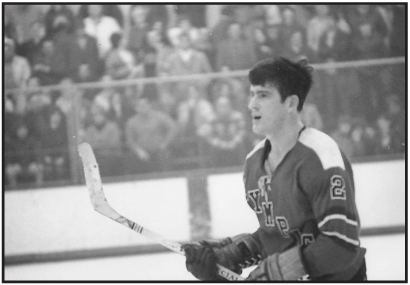
After outlasting Braintree in a taut semifinal series, the championship series didn’t begin the way the Olympics hoped, as they fell behind 3-0 en route to a 6-3 loss. In Game 2, the Monarchs powered home four goals in the second period on their way to a 6-4 win and 2-0 series lead.
In Game 3, the Olympics appeared to have righted the ship, completely outplaying their competition through two periods. However, Manchester came alive in the third stanza to pull out a 5-2 win and a 3-0 advantage. Letourneau scored both of Concord’s goals and Berglund made 38 saves. Dave Conte staved off elimination for Concord in Game 4, scoring at 1:15 of sudden-death OT to give the Olympics a 6-5 win. Other goals were scored by Seabury, Littell, McShane and two by Sheen.
In Game 5, the Olympics took a 3-1 lead after one, with Allan Clark and Bob Devaney lighting the lamp. However, by 2:22 of the second, Manchester had tied it 3-3 and went on to score three more and win its second straight championship.
1972-73
Don McKenney took over the coaching reins, having spent 13 years in the NHL. In addition, Bob Tardif returned as the general manager with the responsibility of the overall operations.
In the best-of-five semifinal series, the second-place Olympics (27-11-2) hosted the third-place Monarchs (26-13-1). Bob Ring shut out the Monarchs in Game 1 (5-0) and led the Olympics to a series sweep, setting up a best-of-seven final against Braintree (36-3-1).

After losing Game 1 at the Ridge Arena in Braintree by the score of 4-2, Dave Sheen scored two goals, including the game-winner, to even the series at a game apiece. In Game 3, Concord was anxious to win one on enemy ice. Its sparkplug line of Conte, Letourneau and Arndt took over, and Arndt scored a pair of goals for a 2-1 lead. Fewster scored the eventual game winner at 13:06 of the second period and Sheen scored an insurance goal at 1:17 of the third. Ring notched his sixth victory of the playoffs with a 30-save effort.
In Game 4 the Olympics hoped to take advantage of their great home crowd but instead were shocked by Braintree, 8-2, to even the series at two. A bounce-back in Game 5 was not in the cards. Concord had its second lackluster performance in a row and was beaten soundly by the score of 5-0.
In Game 6, the Hawks had a single vision – to end things on home ice. Ray Letourneau played in net, making 26 saves, and Concord rallied to tie three times, but it was not enough in a 4-3 loss. The win gave the Braintree Hawks the first
league championship for a team other than Manchester or Concord.
1973-74
Players would not know this season would be the last for the Concord Eastern Olympics. The season began with the C.E.O. playing in the newly-formed Can-Am League. Concord played in the Northern Division against only the Manchester Monarchs and Framingham Pics, five games apiece along with some independent games.
In the first game of the Can-Am League triple-elimination playoffs, Concord opened up a five-goal outburst in the final period in Framingham to take a 6-2 victory. Bill Seabury had a field day, scoring a hat trick while assisting on two more.
Most Goals in a Season – Dick Pinch, 51;
Most Assists in a Season – Bill Seabury, 69
Most Points in a Season – Billy Seabury, 105
Most Wins by a Goaltender – Bob Brescia, 27
Most Consecutive Games Played – Buzz Littell, 124
Most Consecutive Games Played – Tom Mechem, 241 through 1972-73 season
Most Penalty Minutes One Season – Greg Wright, 160 through 1972-73 season
In Game 2 in Concord, with Ring in net, the Pics scored the first goal in a game that would produce 13 of them. The teams traded leads, with Framingham going ahead 6-5 in the third. But former UNH star Bill Monroe made no mistake at 15:49 and tied the score 6-6. Charlie Floyd scored a hat trick, including the game-winner, with a blistering slapshot at 6:46 of overtime.
In Game 3 it was veterans night at the Everett Arena – Concord veterans, that is, as the line of Buzz Littell, Bill Seabury and Tom Mechem combined for four goals and six assists, leading the Olympics to a 8-5 victory over archrival Manchester. That, coupled with the Monarchs loss to Framingham on Sunday night, eliminated Manchester from the tournament and left Concord and Framingham with one loss apiece.
Game 4 was played on Saturday night, March 9, with more than 1,000 fans, the largest crowd of the season. It saw three first-period goals scored as the Olympics upended the Framingham Pics to win the first and probably the last
Can-Am Northern Division championship at the Everett Arena. Dave Conte, Mickey Goulet, Tom Mechem and Bill Monroe scored for Concord. Bob Ring made 26 saves, allowing just the one goal.
Top scorers for Concord that season were Littell (23-33-56), Seabury (19-35-54), Letourneau (24-21-45), Monroe (21-23-44) and Mechem (12-24-36). Ring played in 21 games (3.62 GAA) while Letourneau played in 13 (4.08 GAA).
The storied history of the Concord Eastern Olympics was now complete. They provided so many great memories to the fans of the Capital City from their inaugural season in 1966-67 to their final one in 1973-74.
